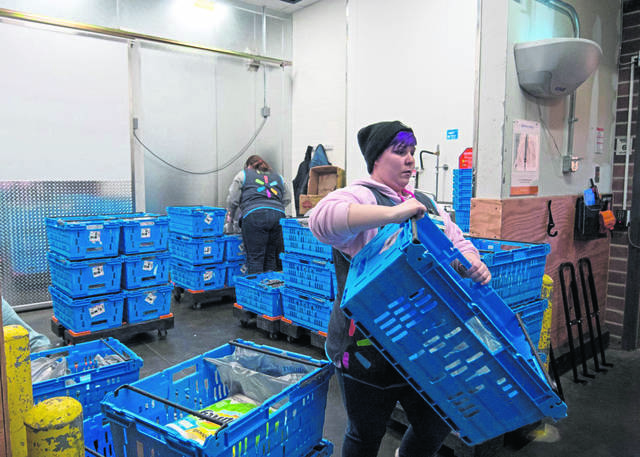Buying groceries online has been one of the things that has made many people’s lives easier during the coronavirus pandemic.
While staying home has been frustrating since Gov. Tom Wolf closed schools in March and then issued an order closing non-life-sustaining businesses, modern technology has meant if you have a bank card and access to an app or a website, you can fill your shopping list online, pick a time for delivery and wait for it to show up.
Some have seen it as a lifesaver. Others have pointed to it as classist and elitist, allowing people who could afford it to stay safely at home while the low-paid workers filling the orders braved the grocery stores that were one of the few places open for people to meet and germs to mingle.
It means something else, though. People who can’t afford it have to do their own shopping, or rely on family for help.
For some, that’s not a big deal. They might even relish the idea of a break from the cabin fever of quarantine. But a chunk of those low-income shoppers do have a card. It’s just not one that lets you shop online. It will soon though.
Come June, those who receive Supplemental Nutrition Assistance Program — or SNAP — benefits will be able to use a pilot program in Pennsylvania to do grocery shopping online at Amazon, Walmart and ShopRite. The benefits will only be good for food, not fees, tips or other charges, but it could prove to be a boon for a specific community.
According to the National Council on Aging, 4.7 million Americans over 60 receive SNAP benefits. That is exactly the age group that faces greatest danger from covid-19.
The state Department of Health’s demographic breakdowns show 55% of positive covid-19 cases are among those over 50, while 57% of hospitalizations have been among those over 65. If there is a way to minimize exposure of that critical group to the virus, it seems like a smart thing to do.
Nutrition is hard to separate from health. In seniors it can be particularly entwined. A Center on Budget and Policy Priorities study showed older SNAP recipients were 23% less likely to be admitted to a nursing home or a hospital. With the number of covid-19 cases in nursing homes, that’s a good goal.
It also makes the pilot program a potential win for taxpayers. Making it easier and healthier for low-income seniors to get food to their homes could mean lower health care costs picked up by other programs.








